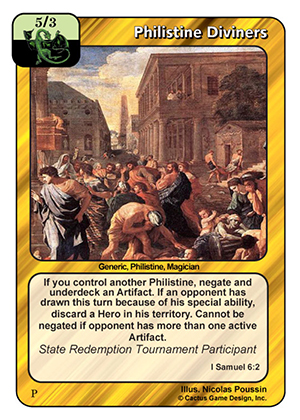Edward Teach was one for theatrics. You probably know him better as the notorious pirate Blackbeard. His fame and glory have stretched throughout the ages; although not because he was beloved and praised by admirers. His fame and glory were caused by the fear he inspired in His enemies. In an effort to take booty laden ships without costly deaths or risk sinking the ship, he would try to scare the enemy into surrender before it came to a real fight. Stuffing long bolts in front of cannons created a rather intimidating effect at close range as well as canvas bags stuffed with scrap and glass. Dangerous and scary stuff when shot out of a close-range cannon! Upon boarding a ship, he famously lit candles in his beard and hair to give of a smoke as if he were a devil come up from the infernal regions. When we think of God’s glory, we tend to think of sentimental moments of spirituality. There is certainly a time and place for that, but there are many ways that God has glorified Himself because His glory is a great priority for Him. And unlike Blackbeard, he was more substance than theatrics.
In Part 4, we were introduced to the theme of God’s glory and that it is the display of His supreme value. That theme is further explored as we see just how God is glorified in 1 Samuel 6. It isn’t that God is great, and He keeps that fact quietly to Himself. It is displayed in magnificent ways so that we might ascribe greatness to Him—this can even happen in “non-traditional” ways as we’re about to see. Pay close attention to the Philistine’s reaction to the severe plagues God is sending against the people in the territory that holds the Ark of the Covenant captive and what the whole story leads up to.
Now the ark of the LORD had been in the territory of the Philistines for seven months. 2 And the Philistines called for the priests and the diviners, saying, “What are we to do with the ark of the LORD? Tell us how we may send it to its place.” 3 And they said, “If you are going to send the ark of the God of Israel away, do not send it empty; but you shall certainly return to Him a guilt offering. Then you will be healed, and it will be revealed to you why His hand does not leave you.” 4 Then they said, “What is to be the guilt offering that we shall return to Him?” And they said, “Five goldtumors and five gold mice corresponding to the number of the governors of the Philistines, since one plague was on all of you and on your governors. 5 So you shall make likenesses of your tumors and likenesses of your mice that are ruining the land, and you shall give glory to the God of Israel; perhaps He will lighten His hand from you, your gods, and your land. 6 Why then do you harden your hearts as the Egyptians and Pharaoh hardened their hearts? When He had severely dealt with them, did they not let the people go, and they left? 7 Now then, take and prepare a new cart and two milk cows on which there has never been a yoke; and hitch the cows to the cart and take their calves back home, away from them. 8 Then take the ark of the LORD and place it on the cart; and put the articles of gold which you return to Him as a guilt offering in a saddlebag by its side. Then send it away that it may go. 9 But watch: if it goes up by the way of its own territory to Beth-shemesh, then He has done this great evil to us. But if not, then we will know that it was not His hand that struck us; it happened to us by chance.”
1 Samuel 6:1-9
The Philistines stubbornly held onto the Ark for 7 months. Then the mice, tumors, and panic that followed the Ark wherever it went got to be too much. They asked the diviners and priests to find out what in the world they could do to fix this. The solution they come up with—cry “uncle!” and give up. Just to be safe and make sure the terrors that afflict the territories that hold the captured Ark isn’t a coincidence, they devise a test. If two cows who just had calves and never wore a yoke pull a cart carrying the Ark toward Israel, it was definitely God who is doing all this. As you can imagine, two such cows would normally refuse such a thing. Ah, but there was a much more important part to all this before the cow test. Look again at verse 3; they are to send back the Ark with a guilt offering. They are admitting their powerlessness before God. What is more, the offering is to be in the shape of the very plagues that is ruining them! Perhaps the most important verse of this section is verse 5 because explains what God was working up to for the past couple chapters.
“So you shall make likenesses of your tumors and likenesses of your mice that are ruining the land, and you shall give glory to the God of Israel; perhaps He will lighten His hand from you, your gods, and your land.”
They are to give glory to the God of Israel. Does this mean that they repented, tore down the temple of Dagon and joined Israel in worship? Of course not! Although the Philistine diviners and priests gave some solid advice, but they aren’t talking about glorifying God in the sense that we typically think. Note that even the special abilities on both Philistine Diviners and Philistine Priests are still focused on taking out an artifact (a nod to the capture of the Ark of the Covenant) and they seem staunchly loyal to Dagon and the Philistine way of life. The Philistines gave God the glory, alright, but it was not done through willing worship. It was done through their terror and helplessness at His greatness and power. It is not for nothing that the means to glorify God was specifically through golden representations of their affliction. They were essentially saying, “we hate God, but we cannot overthrow Him and must give up before He crushes the rest of us.” How is God glorified through that? It is a way for Him to demonstrate to them, to Israel, and to us that He is the only all-powerful Ruler of the universe. Psalm 2 makes a similar point when it asks,
“Why are the nations restless and the peoples plotting in vain? The kings of the earth take their stand and the rules conspire together against the LORD and against His Anointed, saying, “Let’s tear their shackles apart and throw their ropes away from us!” He who sits in the heavens laughs, the LORD scoffs at them. Then He will speak to them in His anger and terrify them in His fury, saying, “But as for Me, I have installed My King upon Zion, my holy mountain.”
Psalm 2:1-6
That laughter isn’t one of amusement. It is one of derision. The display of God’s fury in the Psalm and the reaction of terror by the Philistines are both examples of God demonstrating His glory and greatness. The display of His glory is the engine that drives this chapter and all of redemptive history that finds its ultimate expression in Jesus Christ—both the “rock of offense” (Romans 9:31) and the “radiance of the glory of God and the exact imprint of His nature” (Hebrews 1:3).
Conclusion and Application
This story does not jive with the notion of a god that is full of warm fuzzies and concern only for making sure I get the good parking space at Walmart. This isn’t the great cosmic vending machine who exists only to give me what I demand if I insert a prayer and some faith. This story reveals God for who He is and what He values above all else—His glorious name. The fact is that all creation will glorify Him in the end. God will be glorified though His righteous justice and judgment against His enemies or He will be glorified through the willing praise of those who He has redeemed. If Jesus Christ is not the singular joy and ruler of your life, then you are by default in the camp of those destined to glorify God like the Philistines—in despair and anguish (except for eternity). If you are one of His own, it is your mission to magnify the glory of Jesus in how you live, who else you tell of His greatness, and in your satisfaction of Him as your treasure above all else. Don’t be a Philistine when it comes to this.
To buy singles, sealed product, and other gaming supplies mentioned, please visit out sponsors!

